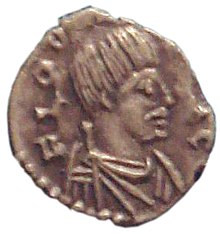Sciri
This article includes a list of references, related reading, or external links, but its sources remain unclear because it lacks inline citations. (February 2009) |

The Scirii (also Skiri or Scirians) were a tribe in Eastern Europe, attested in historical works between the 2nd century BC and 5th century AD.
The Protogenes Inscription (3rd century BC) mention the Sciri together with the Galatians and probably Indo Iranian Saii[1] when they tried unsuccessfully to capture the greek city Olbia, northwest of the Black Sea. It has been suggested that the Sciri, like the Hirri, as mentioned by Pliny the Elder in association with Sarmatians and Venedi, actually belonged to the latter since he does not mention the Sciri among the German people and neither Ceasar nor Tacitus mention the Sciri at all.[2] They reappear only at the time of Attila the Hun.
The etymology of their name is unclear. Attempts that are based on Germanic yielded clean- or pure-bloods as opposed to the neighbouring tribe of Bastarnae mixed-bloods (cf. bastard)[3] Other authors suggest a link with the term Shire. Also an Indo Iranian etymology was suggested, departing from -shir, lion.[2]
The Scirii are believed to have first lived within the territory of modern Poland. They migrated southwards apparently around 200 BC (some secondary works give a more precise date of 230 BC), along with the Bastarnae. After a peace treaty with the Roman Empire they are recorded as living east of the Bastarnae, near the Black Sea.
For the next six centuries historical references to the Scirii are sporadic, but sufficient to suggest continuity.
In the 4th century AD, some of the Scirii lived in the Carpathians, where they were defeated by the Huns. During the height of the Hunnic empire under the Huns' leader Attila, the Scirians allied themselves with Attila and provided potent infantry for him. After the Hunnic empire disintegrated, part of the Scirii joined the Western and Eastern Goths, while others became foederati in the Roman empire. Odoacer, the first "king of Italy", was half-Scirian.
References
- Nationalencyklopedin article on Scirians.
